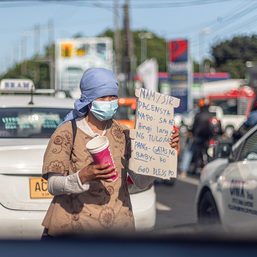SUMMARY
This is AI generated summarization, which may have errors. For context, always refer to the full article.

MANILA, Philippines – The Supreme Court (SC) has ordered PLDT Incorporated to regularize its employees assigned in installation, repair, and maintenance services.
In a decision penned by Associate Justice Rodil Zalameda, released on Friday, March 8, the High Court’s First Division dismissed the petition for certiorari filed by PLDT, former Department of Labor and Employment (DOLE) Secretary Silvestre Bello III, and Manggagawa sa Komunikasyon ng Pilipinas. Certiorari is a legal remedy used to review a lower court’s decision.
The SC, in its decision, explained that labor contracting – which means a non-employee of a company is contracted to work based on a specific rate and period – is not necessarily illegal. Article 106 of the Labor Code allows an employer to engage in legitimate labor contracting, the High Court said, adding that the DOLE implements this through its Department Order No. 18-A and 174-2017.
Labor-only contracting is done when a contractor or sub-contractor merely recruits, supplies or places workers, or when the following elements are present, according to the High Court:
- “The contractor or subcontractor does not have substantial capital or investment which relates to the job, work or service to be performed and the employees recruited, supplied or placed by such contractor or subcontractor are performing activities which are directly related to the main business of the principal.”
- “The contractor does not exercise the right to control over the performance of the work of the contractual employee.”
Although it contracted out specific jobs, PLDT had argued that this did not mean the contractors’ employees are direct employees of the telecommunications company. But, the SC ruled that employees assigned in installation, repair, and maintenance services of PLDT lines perform work directly related to the company’s business. Thus, they should be regularized.
The High Court explained that under Article 295 of the Labor Code, regular employment is determined through the connection between the employee’s work and the “usual” business or trade of the employer.
“It cannot be denied that without the work performed by these employees, PLDT would not be able to carry on its business and deliver the services it promised its consumers,” the SC added.
The SC also remanded the case to the DOLE National Capital Region (DOLE NCR) office for “proper identification, review, and determination of the factual issues.” Specifically, the SC tasked the DOLE NCR to do following:
- Review and properly determine the effects of the regularization of the workers performing installation, repair, and maintenance services
- Review, compute, and properly determine the monetary award on labor standards violation, to which petitioner PLDT and the concerned contractors are solidarily liable
- To conduct further appropriate proceedings, consistent with the decision.
Why did the High Court direct the DOLE regional office to do these? The SC said regularization of employees involves “factual consequences” that the High Court cannot determine.
What happened before
The DOLE had conducted a “special assessment and visit of establishment” in PLDT, where the labor department found that the company and its contractors were engaged in labor-only contracting. The DOLE recommended to PLDT to regularize contractual employees who perform jobs directly related to its business.
Later, then-labor chief Bello ordered the following:
- The contractors’ 7,416 workers under labor-only contracts should be regular PLDT employees from the time of their initial deployment. Bello ordered PLDT to include these employees in the payroll of regular employees.
- The registration of labor-only contractors will be cancelled after proceedings.
- PLDT and the contractors will pay the unpaid monetary benefits of the contractual employees amounting to P66,348,369.68.
Bello issued another order reducing the PLDT and contractors’ monetary liability to P51,801,729.80, and reduced the number of employees ordered regularized to 7,344.
When the case reached the Court of Appeals (CA), the appellate court ruled that the employees contracted to perform installation, repair, and maintenance services of PLDT lines should be regularized. However, the CA reversed the regularization of the following workers of the contractors:
- Those performing janitorial, maintenance, security, and messengerial services
- Employees of the medical services provider of PLDT
- Individuals who render professional services
- Contractual workers engaged in information technology-based services
- Employees engaged in sales who are paid on commission basis.
After the CA ruling, the case was brought to the High Court. – Rappler.com
1 comment
How does this make you feel?





![[OPINION] Unpaid care work by women is a public concern](https://www.rappler.com/tachyon/2024/07/20240725-unpaid-care-work-public-concern.jpg?resize=257%2C257&crop_strategy=attention)









I appreciate the High Court’s First Division’s decision, especially Associate Justice Rodil Zalameda, for its fairness. Such a decision will benefit the appropriate contractual workers who will be regularized. It will also bring social justice to our society’s labor sector.